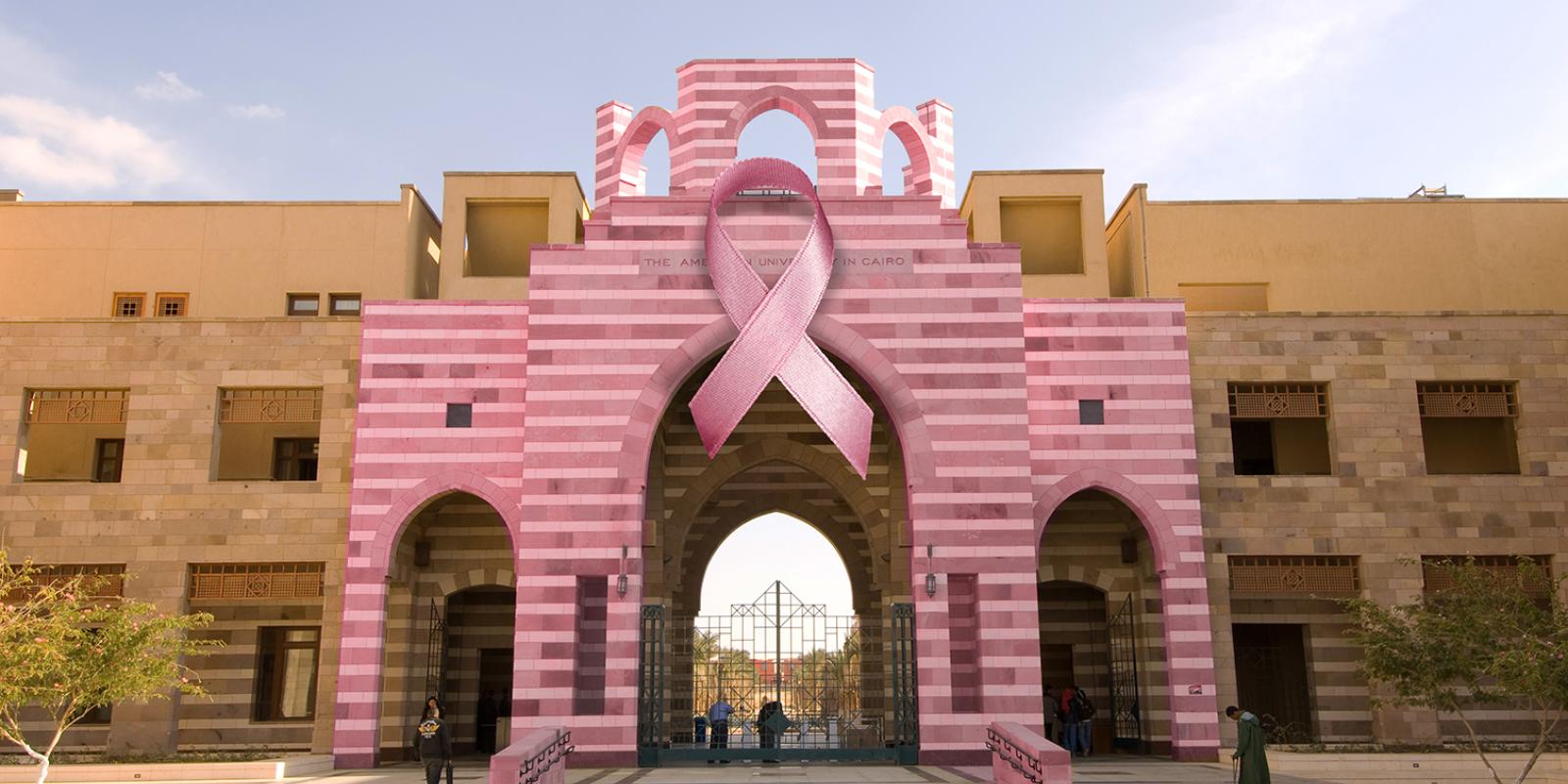
World Cancer Day: Five Ways AUC Helps in the Fight Against Cancer
Cancer is a global epidemic, with an estimated 14.1 million cancer cases diagnosed around the world in 2012. This number is expected to rise to 21.7 million by 2030. Calling the global community to action, World Cancer Day challenges us all to unite in the fight against cancer.
AUC is helping to lead this fight in Egypt and abroad, from cutting-edge research to community engagement. To learn more, see five ways the AUC community is getting involved:
Improving Treatment Efficiency
Researching radiation therapy, one of the most widely used forms of cancer treatment, Andreas Kakarougkas, assistant professor in the Department of Biology, aims to maximize the effectiveness of radiotherapy while minimizing harmful side effects.
"AUC actively supports several cancer research projects and the development of future cancer research scientists through faculty and student research grants,” said Kakarougkas who is now collaborating with Tamer Shoeib, chair of the chemistry department, to test the effectiveness of new methods of delivery of chemotherapy drugs.
“One of the biggest problems in chemotherapy is that only a small percentage of the drug reaches the DNA of cancer cells where it can exert its cytotoxic effect [being toxic to cells]," Kakarougkas explained. "Finding ways to maximize drug delivery efficiency means that the same amount of cancer cell killing can be achieved with a smaller dose, thus causing fewer side effects to healthy tissues. Shoeib and his team synthesize novel drugs, whereas my team tests the biological effectiveness on human cancer cell lines."
Educating both men and women about early breast cancer prevention, detection and diagnosis, students in the Leadership for Education and Development (LEAD) program held their 11th annual conference, Outlive: Breast Cancer, to raise awareness.
“Awareness is key to saving lives,” said Madonna Ebied, a LEAD student majoring in business administration. “Breast cancer is curable if you discover it at an early stage. Also, if you gain the knowledge and research the right information, you can avoid the loss of a family member or friend.”
Nanotechnology is unlocking new ways to treat cancer while lessening side effects. One example is the research on breast cancer currently being conducted by Wael Mamdouh, assistant professor of chemistry and director of the nanotechnology graduate program and Rania Siam, chair of the biology department, along with nanotechnology graduate student Nancy El-Baz and PhD biotechnology student Laila Ziko.
“Nanotechnology is at the forefront of cancer therapy,” noted Siam. “Nanomedicine can optimize the efficacy of existing anti-cancer compounds. Through this, the amount of drug given to the patient is significantly reduced, as it’s delivered in minute amounts —nanoscale — yet it’s targeted to the cancer-diseased cells, and the possible side effects on healthy tissue can be dramatically diminished.”
Examining cancer in ancient Egypt, Egyptology Professor Salima Ikram studies the past to find solutions for the future. In this video, Ikram shares her research on cancer’s genetic components and its implications for the modern day.
"We are working to study the history of cancer, hoping to find reasons for its spread, and indeed for its cause,” said Ikram.
Tamer Shoeib, associate professor and chair of the Department of Chemistry, is breaking the one-size-fits-all mold for chemotherapy research, emphasizing personalized care for more effective cancer treatment.
“We have a long way to go, but the progress we are making is encouraging,” Shoeib affirmed. “The personalized approach to therapy is a promising step that has the potential to change the way we think about chronic diseases such as cancer, and to revolutionize the treatment of these diseases.”
